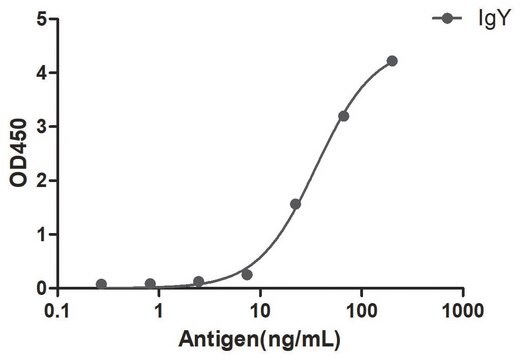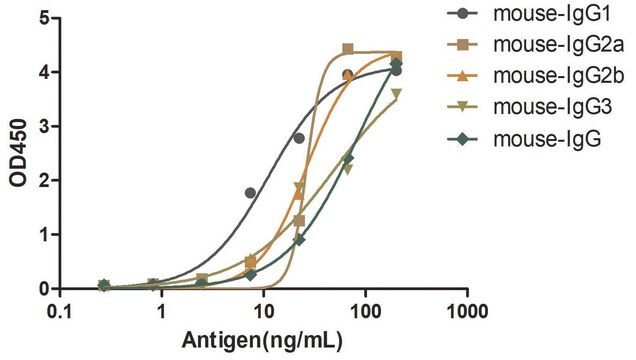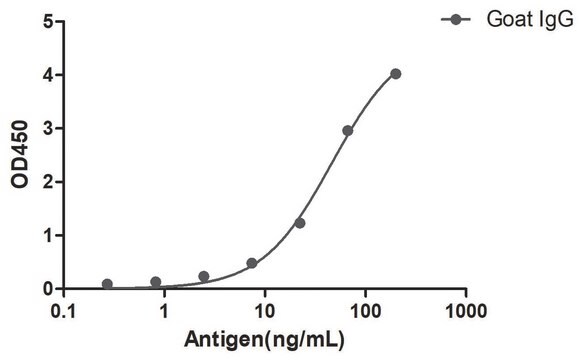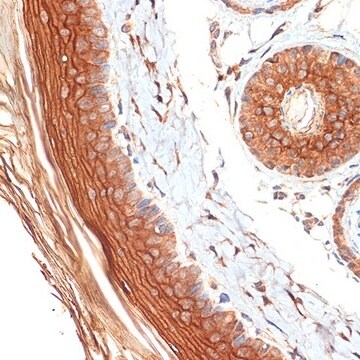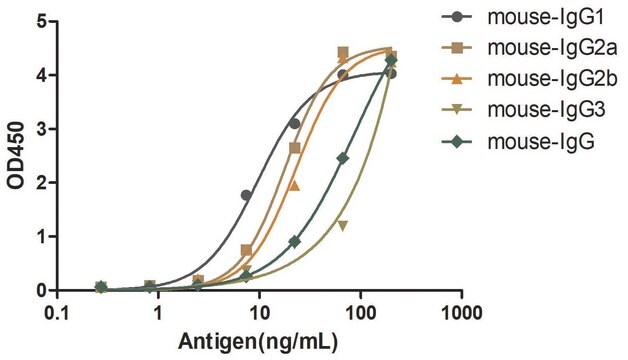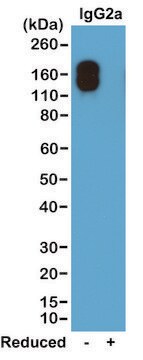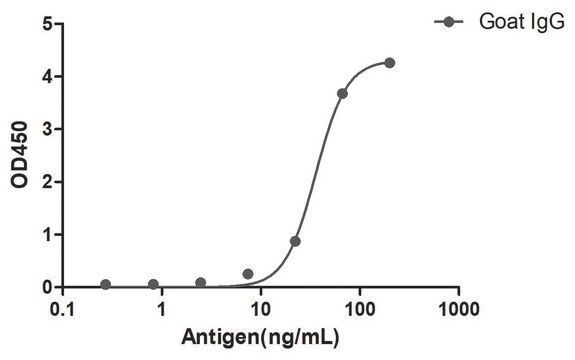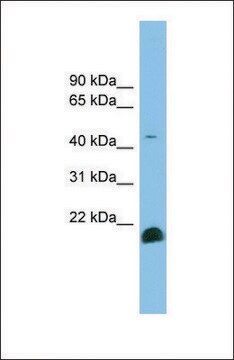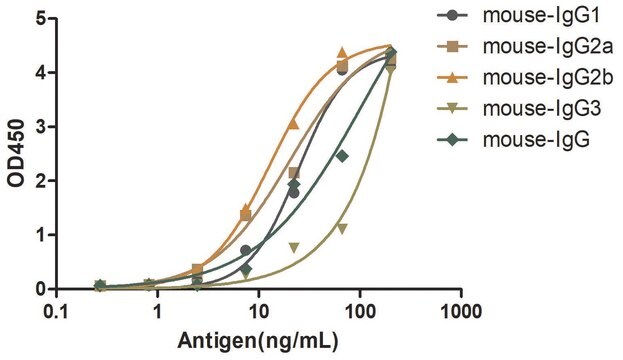SAB5801015
Alpaca Anti-Mouse kappa single domain Antibody
recombinant Alpaca(VHH) Nano antibody
Synonym(e):
Recombinant Alpaca single variable domain secondary Nanobody
About This Item
Empfohlene Produkte
Biologische Quelle
alpaca
Rekombinant
expressed in E. coli
Konjugat
unconjugated (6*his tag and one cys were added at the C terminal of the VHH)
Antikörperform
affinity purified immunoglobulin
Antikörper-Produkttyp
secondary antibodies
Klon
recombinant monoclonal
Form
lyophilized solid
Mol-Gew.
14 kDa
Speziesreaktivität
mouse, Alpaca
Methode(n)
ELISA: 1:5000-1:20000
western blot: 1:5000-1:20000
Größe
0.1 mL
Farbe
colorless
Isotyp
VHH
Versandbedingung
wet ice
Lagertemp.
2-8°C
Allgemeine Beschreibung
Most monoclonal antibodies are generated in mouse. There are five antibody isotypes (IgA, IgD, IgE, IgG, and IgM) from mouse. Each isotype has a different heavy chain. Mouse IgG constitutes 75% of serum immunoglobulins, and IgG is the predominant form of first antibody produced from mouse. Mouse IgG consists of five subclasses-IgG1, IgG2a, IgG2b, IgG2c(inbred mouse strains with the Igh1-b allele have IgG2c isotype instead of IgG2a), IgG3. They are highly homologous and differ mainly in the hinge region. The whole IgG molecule possesses both the Fc region and the Fab region, which possessing the epitope-recognition site. The IgG contains two heavy and light chains(kappa or lambda), and the heavy chain is about 50 KD and the light chain is about 25 KD. The common IgG is monomeric with a molecular weight of approximately 150 kD.
VHH are single-domain antibodies derived from the variable regions of heavy chain of Camelidae immunoglobulin. The size of VHH is extremely small(<15KDa) compared to other forms of antibody fragment, which significantly increase the permeability of VHH. Thus VHH is considered of great value for research, diagnostics and therapeutics.
Spezifität
Isotype: VHH domain of alpaca IgG2b/2c
Immunogen
Verpackung
Physikalische Form
Rekonstituierung
Lagerung und Haltbarkeit
Sonstige Hinweise
Sie haben nicht das passende Produkt gefunden?
Probieren Sie unser Produkt-Auswahlhilfe. aus.
Signalwort
Warning
H-Sätze
Gefahreneinstufungen
Aquatic Chronic 3 - Skin Sens. 1
Lagerklassenschlüssel
13 - Non Combustible Solids
WGK
WGK 3
Flammpunkt (°F)
Not applicable
Flammpunkt (°C)
Not applicable
Hier finden Sie alle aktuellen Versionen:
Analysenzertifikate (COA)
It looks like we've run into a problem, but you can still download Certificates of Analysis from our Dokumente section.
Wenn Sie Hilfe benötigen, wenden Sie sich bitte an Kundensupport
Besitzen Sie dieses Produkt bereits?
In der Dokumentenbibliothek finden Sie die Dokumentation zu den Produkten, die Sie kürzlich erworben haben.
Global Trade Item Number
| SKU | GTIN |
|---|---|
| SAB5801015-100UG | 4065269796299 |
Unser Team von Wissenschaftlern verfügt über Erfahrung in allen Forschungsbereichen einschließlich Life Science, Materialwissenschaften, chemischer Synthese, Chromatographie, Analytik und vielen mehr..
Setzen Sie sich mit dem technischen Dienst in Verbindung.